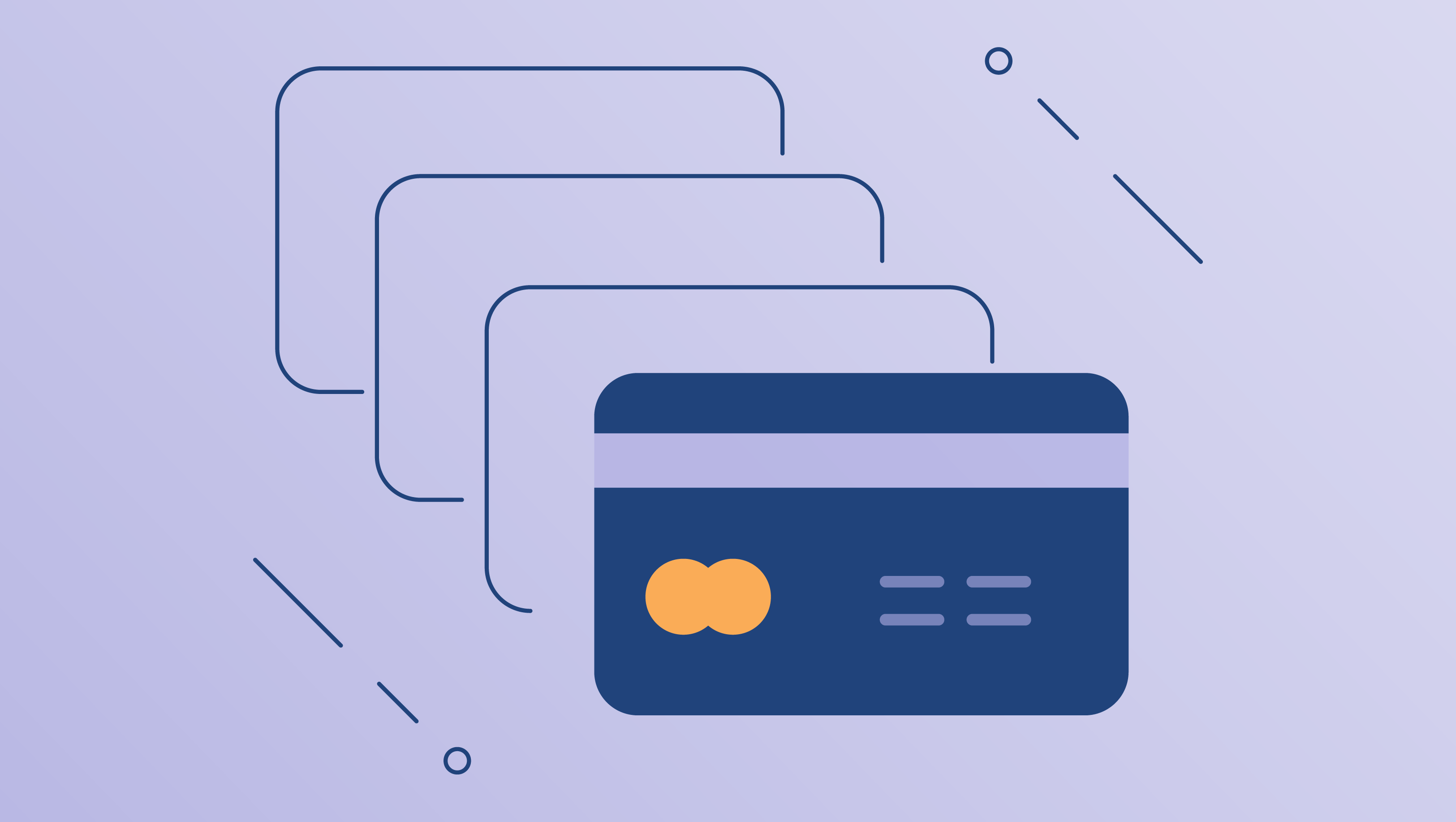Your read progress
7 common credit card questions answered by Aqua
6 minute read
Updated 3rd October 2022 | Published 28th September 2022

We asked Sharvan Selvam, Commercial Director at Aqua, who won ‘Best Credit Building Product Provider’ at our 2022 Consumer Credit Awards to take over our blog to answer some of your common credit card questions.
How does a credit card work?
If you are new to credit cards, they can seem a little daunting, but the idea is straightforward. Credit cards are a flexible way to borrow money, enabling you to buy things now and pay for them later. The amount you can borrow each month is called your credit limit and is determined by your credit card provider, based on a number of factors such as your income and credit history. Every time you buy something on your credit card, you are borrowing money which will have to be paid back. If you don’t pay it all back before your payment due date, you’ll be charged interest on the balance.
Having a credit card and using it responsibly is a great way to build a strong credit score, which is important as you move through life, as it can help you accomplish big financial milestones such as getting a mortgage.
How does credit card interest work?
When you borrow money on a credit card, any balance you carry past your payment due date will typically be charged interest. Interest is calculated using your daily interest rate and average daily balance and compounded daily. So, the exact amount of interest you’ll owe at the end of the statement period is based on the balance you carry past your payment due date and any additional payments made in the month. If you pay your balance in full, you won’t be charged any interest. The more you pay off, the less interest you will have to pay in total. Using a credit card for everyday spending, making payments on time and staying within your credit limit can be a great way to build your credit score over time.
What credit card is best for me?
With the wide variety of credit cards available, it can be tricky to know which one is best. When deciding which one is right for you, it’s important to think about how you’ll be using it. For example, are you looking to build your credit score, spread the cost of a big purchase, or earn loyalty points?
If you’re looking to earn loyalty points, such as air miles, a rewards card is your best option. Rewards cards often come with an annual fee and typically require a strong credit score for you to be approved.
A balance transfer credit card will enable you to move the balance from one card, usually with a high APR, to a card with a lower APR or 0% APR promotional period. This can be useful if you’re looking to pay down debt and save money on interest.
A purchase credit card is used for everyday spending and often comes with an interest-free period enabling you to spread the cost of a big purchase, as long as you make the minimum payments and stay within your credit agreement.
If you’re looking to build your credit score, a credit builder card, like Aqua Classic, is a good option. Credit builder cards are designed for those who have limited or no credit history or have experienced a bump in the road on their credit journey. Using a credit builder card responsibly, making payments on time, and staying within your credit limit, can build your credit score and open you up to other credit offers in the future.
The key is to think carefully about how you’ll use your credit card and how much you can afford to spend on your credit card whilst keeping up with your repayments.
Can a credit card improve my credit score?
The journey to building a better credit score might seem tough, but using a credit card responsibly and keeping up with your repayments is a great way to build your credit score because it shows lenders that you’re a reliable borrower. There are other simple ways you can help build your credit score too, such as registering on the electoral roll and not applying for too many credit cards in a short space of time.
How to get a credit card with bad credit?
A common reason people are turned down for credit cards is due to a low credit score. Having a low credit score could be for a number of reasons, including limited or no credit history, or having made mistakes with credit in the past. The good news is that there are cards, like Aqua, that are specifically designed to help people who have a bad credit score and want to get back on track. The first step to getting a credit card is to check your eligibility through an eligibility checker like Aqua’s SafeCheck. The check takes just 60 seconds and lets you know if you're eligible. If you are, you can then apply directly online for Aqua Classic.
What protection do I get with a credit card?
One of the benefits of using a credit card is the protection you get if there is an issue with a purchase, such as a retailer not delivering the product you ordered. In fact, under Section 75 of the Consumer Credit Act, any purchase between £100 and £30,000 is protected if a retailer or trader fails to fulfill their contract with you – including if a retailer goes bust.
Another benefit of using a credit card is fraud protection. Both Mastercard and VISA offer ‘zero liability’ fraud protection, which means you can have peace of mind knowing that your lender won’t hold you responsible for ‘unauthorised transactions’, as long as you used reasonable care in protecting your card from loss or theft and promptly report suspicious activity to your lender.
If you have lost your card, or you think it has been compromised, you should inform your lender straight away to prevent someone else from using it.
Your credit card provider may also offer additional security features to protect you. For example, Aqua provides you with a one-time password (OTP) to authorise certain actions, such as online card purchases and access to your account. The OTP acts like a personalised key, locking fraudsters out by preventing anyone but you from authorising actions on your card.
Can you pay bills with a credit card?
Yes, there are some bills you can usually pay with a credit card, such as utility bills, phone contracts, car and home insurance, and subscription services like a gym membership. Other bills, such as your mortgage and rent payments may be possible to pay with a credit card, but it’s uncommon. Bear in mind that some companies might add a convenience or processing fee for credit card payments, so double-check for any fees to avoid incurring extra cost.
Whatever you decide, it’s important to make sure that you’re able to cover the cost of your bills with your income each month. Otherwise, this could suggest you are struggling to cover your basic living costs which over time can turn into unhealthy debt. Ultimately, if you’re using your credit card for everyday purchases and bills, making payments on time, and staying within your credit limit, you’ll be on your way to building a strong credit score.
Thanks to Aqua for taking the time to answer our community's frequently asked questions on credit cards. If there’s a topic you’re interested in finding out more about, let us know and we’ll try to cover them in our upcoming blogs.
Don't forget, you can leave a review for Aqua, or any other credit card provider, on Smart Money People, or check out what others are saying with our Aqua reviews. If you’re searching for a credit card, you can read reviews from real people so you can shop with confidence at Smart Money People.
Written by Errolyn
Senior Content and Social Media Executive
As Featured By
Join our mission
We use the power of consumer reviews to help increase trust and transparency in financial services and to deliver industry leading insight and events.
Write a reviewExplore our other topics

News: Awards

News: Industry news

News: Smart Money People news

Guides: Smart money guides

Guides: Smart money tips


.png)

